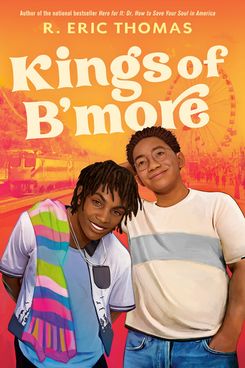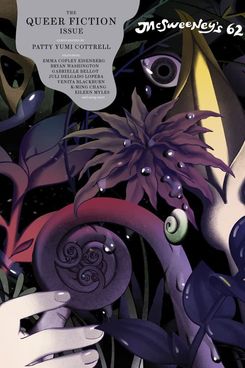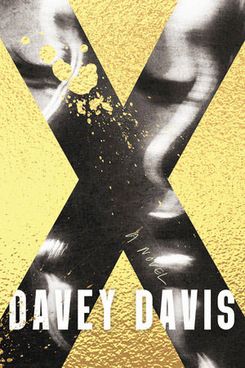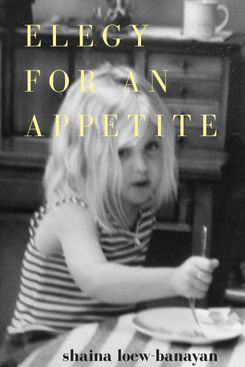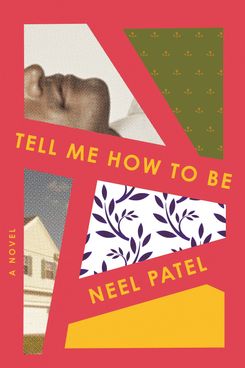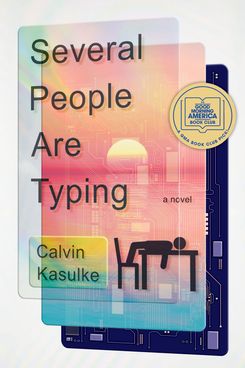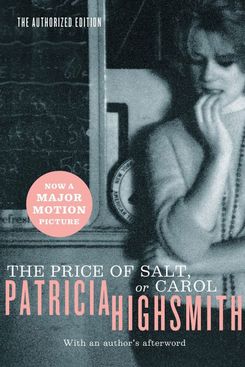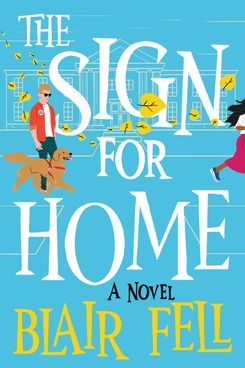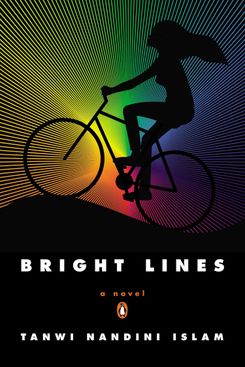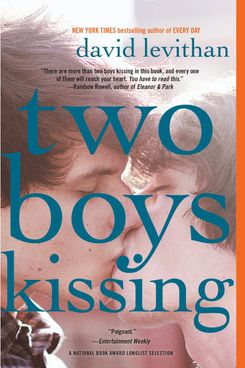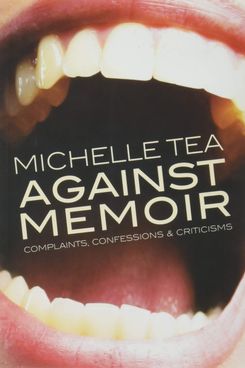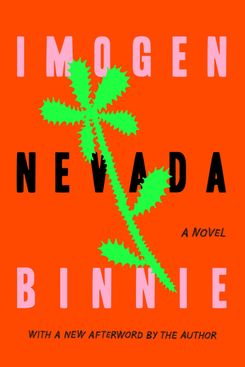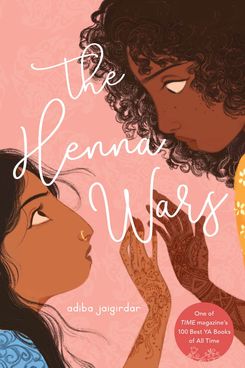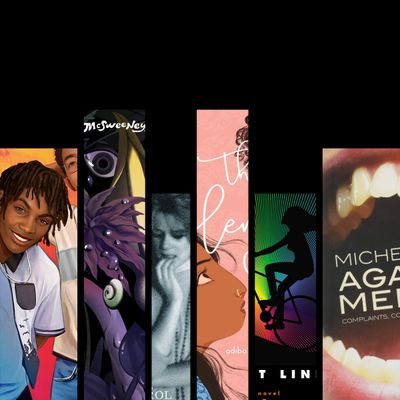
June is Pride Month, and in recognition of the many, many great books written by LGBTQ+ people, the Cut surveyed some of our favorite queer writers on their favorite works by other queer authors. Add them to your independent-bookstore cart or your library-request list now!
This novel is a delightful exploration of Black boyhood, queerness, and friendship. It’s a raucous, joyous, shenanigan-filled story of two best friends who spend one epic day together after discovering that they don’t have as much time left with each other as they thought (it’s just because one of them is moving away! Nothing heartbreaking!), and they want to make the most of their final hours. This one is a must-read for anyone who loves when a queer YA novel feels like a John Hughes movie for a new generation.
— Leah Johnson, author of Rise to the Sun
This issue makes me so happy! Editor Patrick Cottrell has put together a collection ranging from Eileen Myles to Bryan Washington to Juli Delgado Lopera, and every story is a knockout! There is an energy and joy to the issue that puts a smile on my face. A great way to find a new favorite writer and then go and explore their other books.
— Andrew Sean Greer, author of Less Is Lost
I am picky when it comes to a hot book. Davey Davis’s X is the real deal, lacerating the reader with its swagger, prose, and heat. It’s delicious; it’s so gay; it locates and names the state as easily as it locates and names desire. I am not easily subjugated, but these lines brought me to my figurative knees: “I would massage her shoulders before gently holding her under the surface while she struggled, her breasts rising and sinking like feeding koi. In the water, her face was like an angel: shining, many-eyed, misshapen.” Scream. Buy this book.
— Sarah Thankam Mathews, author of All This Could Be Different
Elegy for an Appetite is refreshing, rhythmic, haunting, and LMAO funny. Shaina’s voice reminds me of the first time I read Eileen Myles — what is this literary sorcery? I thought. This book is a companion for anyone who has a relationship with food and the body, which, to be clear, is everyone.
— Chloe Caldwell, author of The Red Zone
This is a dream of a novel — the story is, among so many things, about family and its endless forms, about loves found and lost and reimagined. It’s deeply funny and full of feeling, by turns wickedly funny and emotional. I was smitten, and I’m so glad it’s a part of our canon.
— Bryan Washington, author of Memorial
I love this book because there’s so much about it that sneaks up on you. On its face, it’s a very funny satirical novel about office life, which would honestly be enough! But it’s got so much to say about how our lives are stolen by getting ground up in the gears of capitalism and how we could and should be wanting better. There’s a queer romance in it, too, but what really grabbed me as a reader is a trans narrative that’s just sub-rosa, about the absolute churning horror of having to own and operate a human body.
— Mattie Lubchansky, author of The Antifa Super-Soldier Cookbook
Carol is so seminal it probably seems like an uninspired choice, but I read it recently for the very first time. What I found particularly resonant is the tension it holds between pride and shame. It made me reflect on the personal, shifting nature of shame as well as the myriad insidious ways heteronormativity and homophobia work to capitalize on it and how these things have evolved alongside expressions of pride today. Carol shores up the strength to take the path of least resistance so she can live in her truth with Therese — a groundbreaking-for-its-time happy ending — and that made it both a precious and painful book for me when I read it. I needed a story about lesbians having to negotiate that space; maybe someone else out there does, too.
— Courtney Summers, author of I’m the Girl
This is a love story about a deaf-blind guy, Arlo, and his gay interpreter, Cyril, who set out on a journey to find the lost love of Arlo’s life. Fell, a gay playwright and TV writer, has worked as an interpreter for people like Arlo for decades, so he brings humor, sensitivity, depth, and intimate knowledge of the communities he writes about to this colorful yarn.
— James Hannaham, author of Didn’t Nobody Give a Shit What Happened to Carlotta
So many narratives about being queer and brown are flat stories about the tension between living an authentic queer life and adhering to the oppressive traditions of your immigrant family. Those narratives are spoken of as if they are universal experiences, but they have never reflected mine, which is why I clung to Bright Lines from the moment I started reading. Tanaïs’s story is about a modern Bangladeshi American family living in an overstuffed house in Brooklyn in the summer of 2003. They are weird and funny and have revolutionary politics and love so vastly and deeply. And even then, both parents and children have their own secrets and desires. Tanaïs draws out the challenges of figuring out your own queerness that remain even if you live in a diverse, accepting world and what it means to live between Brooklyn and Bangladesh in a way that never flattens either place. Once you read a book that shows you a fuller range of queer and brown experiences, going back to the one-note narratives will never be enough.
— Jaya Saxena, author of Crystal Clear: Reflections on Extraordinary Talismans for Everyday Life
This is a cathartic, lyrical novel charting the interlocking love lives of several young people and an attempt to break the world record for the longest kiss ever. The story is narrated by a melancholy Greek chorus of dead AIDS patients yet remains full of love and blistering optimism for the next generation of LGBTQ+ people.
— Juno Dawson, author of Her Majesty’s Royal Coven
For those on the periphery of Pride — less go-go dancing on a float, more kicking the curb and gabbing about ways to dismantle the system — Michelle Tea is a badass ally. Against Memoir collects her hilarious, huge-hearted, defiant nonfiction, including a trailblazing long read about antagonism toward trans people by self-proclaimed feminists and the rousing speech “How Not to Be a Queer Douchebag.” The title is as self-aware as it is polemic — Tea’s method is autobiographical but self-questioning — and ultimately, this book may not be against memoir so much as it is a memoir of againstness.
— Jeremy Atherton Lin, author of Gay Bar: Why We Went Out
There were trans-women novels before Nevada was published in 2013, but Imogen Binnie’s road-trip tale waxed philosophical in its many (many) musings on the state of trans consciousness. At the book’s core is a well-wrought relationship between one trans woman who’s been out for ages and is kinda over it and one who hasn’t quite realized she’s trans yet. In detailing that connection, Binnie captures something essential about transness that many books by trans people that preceded Nevada didn’t. This book is not written for a presumed cis audience (though cis people can enjoy it), and it’s the richer for it.
— Emily St. James, writer for vox.com
I love The Henna Wars most for its essential honesty. Jaigirdar captures so much of what it is to be a queer girl, a brown girl, a hairline fracture away from your normie classmates. She writes high-school sweethearts Nishat and Flávia with a deft hand, making them messy and prone to mishap but gracing both with a soft landing by the last page. If they ever invent time travel, I’m zipping back to 2010 and lining the library of my ultrarepressed all-girls’ high school with this perfect, gorgeous book.
— Peyton Thomas, author of Both Sides Now



